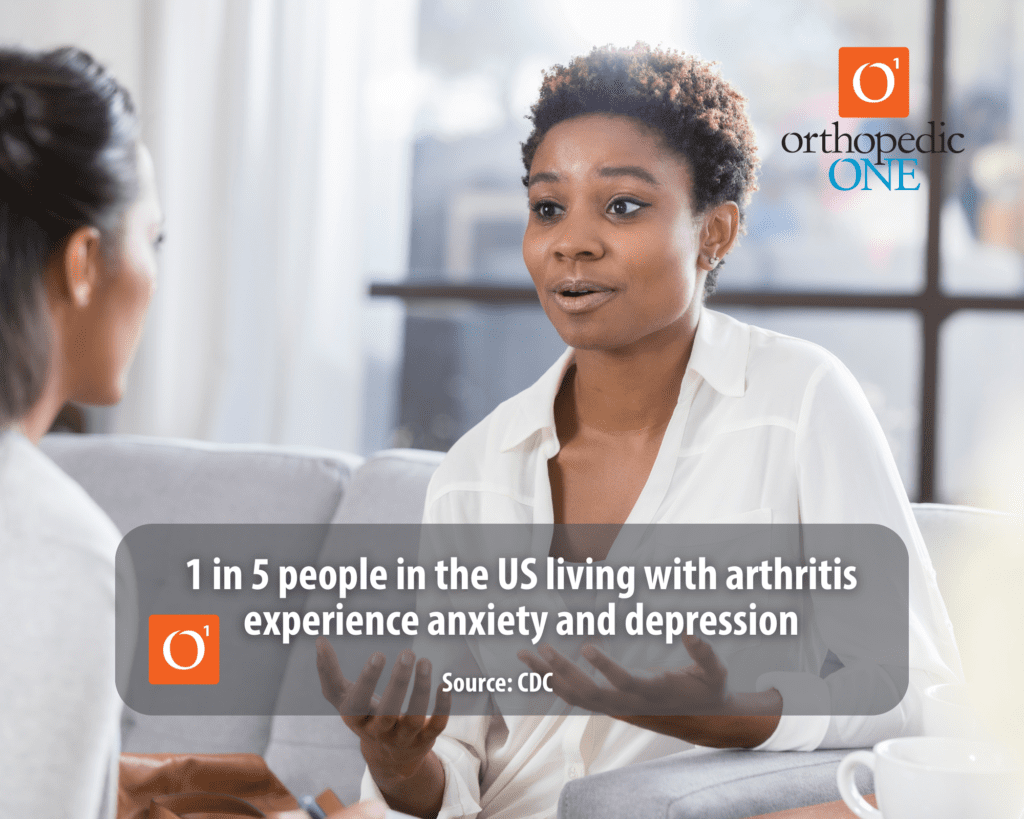THE RELATIONSHIP BETWEEN MENTAL HEALTH AND ARTHRITIC PAIN
May is #MentalHealthAwarenessMonth and #ArthritisAwarenessMonth and we want to give you the tools you need to maintain a mentally and physically healthy lifestyle. Mental Health and Arthritic pain are proven to have a cause and effect on one other. Pain in one area can influence another. When living with chronic pain it is natural to express feelings of sadness or worry. But, if these feelings don’t go away, it can lead you to anxiety and depression. According to The National Library of Medicine, this is known as chronic pain induced anxiety. It is proven that people living with arthritis and chronic pain are more likely to suffer from mental health issues. According to the CDC, 1 in 5 people in the United States living with arthritis experience anxiety and depression, compared to 1 in 9 people who don’t have arthritis and chronic pain conditions. This means adults with arthritis are almost twice as likely to experience anxiety and depression symptoms.

COMMON ANXIETY AND DEPRESSION SYMPTOMS:
- Tightness in Chest
- Worry or Irritability
- Racing thoughts
- Trouble sleeping and focusing
- Lack of interest in hobbies and activities
It is important to monitor your symptoms and any changes in your mental health. Just like your physical health can influence your mental, it works the other way around. Changes in your mental health can have an impact on your physical health. When someone starts feeling a decline in their mental health, their attitude, motivation and drive to work toward their physical pain relief decreases as well. When we do start to notice these changes, we want to take the necessary steps to improve our mental well-being. There are at-home techniques you can try to improve your mental health before trying other traditional methods, like medication or therapy.
AT-HOME TECHNIQUES TO IMPROVE MENTAL HEALTH:
- Meditation
- Journaling
- Being physically active or exercising
- Support Groups
If you don’t notice any improvements with the at-home techniques, reach out to your doctor to see what treatments will work best for you. It is important to monitor our mental and physical health because a change in one will affect the other. This year, keep a close eye on friends and family, especially those living with arthritis and chronic pain. And, now that you know the signs, symptoms, and treatment options, be a resource for yourself, and for those around you.